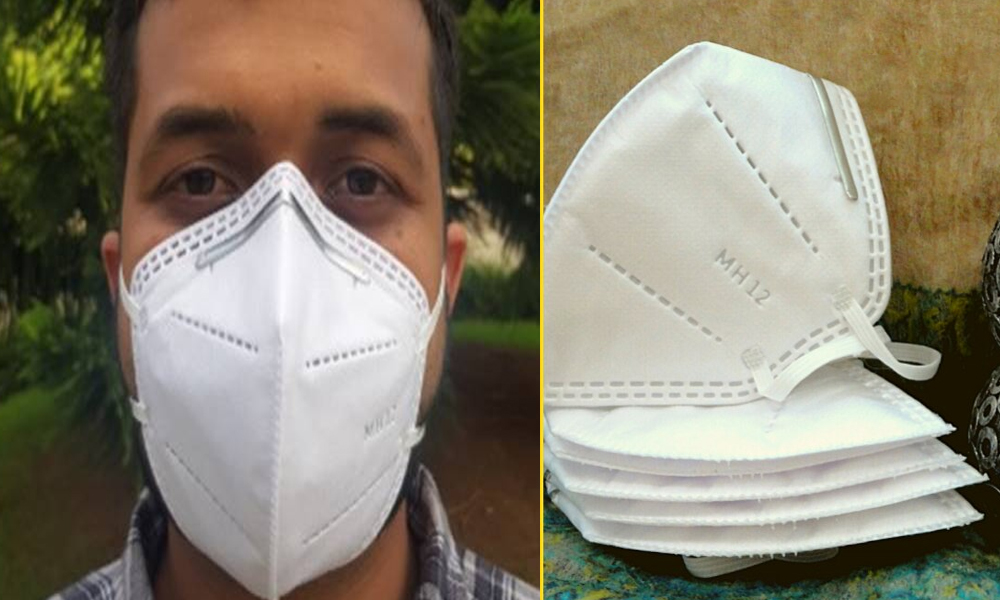
Image Credits: The Indian Express, Ultra Autosonic India/Twitter
MH12: Pune-Based Lab Makes Its Own N95 Masks, To Distribute To Frontline Workers For Free
Writer: Reethu Ravi
Reethu, a story teller, a person often found between the pages of a book or contemplating the nuances of life.
Maharashtra, 10 July 2020 7:53 AM GMT
Editor : Shubhendu Deshmukh |
Shubhendu, the quint essential news junky, the man who loves science and politics in equal measure and offers the complete contrast to it by being a fan of urdu poetry as well.
Creatives : Vijay S Hegde
I am a creative, artistic and ambitious designer, with a talent for thinking outside the box and coming up with innovative ideas and designs. I graduated with a 1st Class honors degree in Video Editing from MAYA ACADEMY OF ADVANCED CINEMATICS
Pune's Venture Centre has come up with MH12 masks which has a Particle Filtration Efficiency of 99%, more than a common N95 mask.
Pune's Venture Centre, the non-profit technology business incubator located at National Chemical Laboratory, is all set to provide its own variant of N-95 face masks to frontline workers for free.
Named as MH12, the concept, design, and manufacture of the mask was completed within two months. Venture had earlier delivered over one lakh face shields to police and medical personnel in Pune and other cities since the onset of the COVID-19 pandemic.
N95 masks can filter up to 95 per cent of the harmful particles, aerosols or droplets in the air. As per international standards, while the Particle Filtration Efficiency (PFE) of such masks are at least 95 per cent, in India, the PFE is fixed at 94 per cent. However, the MH12 masks come with a PFE of 99 per cent.
"There were two mask designs that were top contenders — one with a PFE of 96 – 97 per cent and another with 99 per cent. The latter was finalised for manufacturing purpose," Pravin Chavan, member of the Pune Masks Action Group at the Centre, who led the group making MH12, told The Indian Express.
During the lockdown, extensive research went into the making of these masks. As many as 56 mask designs were checked for their fitting, filtration capacity and examined for leakages before finalising a variant, Venture Centre said.
The name is a reflection of its Pune origins and the commitment and gratitude of the people of Pune to the commitment of the frontline COVID fighters, the team added.
Venture began manufacturing the masks on Tuesday, after successful tests with users at hospitals. The Centre will be manufacturing and marketing the masks in partnership with Ultra Autosonic India. Under its Project Gratitude, the Centre also plans to raise Rs 35 lakh to provide MH12 masks to government hospitals in the coming months.
"Unlike a cloth-based mask which can be stitched using a sewing machine or by hand, an N95 can be manufactured with the help of an ultrasonic machine. These machines are not commonly available in India. Those available are of Chinese makes, which added to our many challenges in developing MH12. We not only developed masks but also developed machines needed to manufacture these N95 masks," said Chavan.
Tata Institute of Fundamental Research (TIFR), Baba Atomic Research Centre (BARC) and Gwalior-based Defence Research and Development Organisation (DRDO) also supported with research for developing MH12 masks.
 All section
All section














